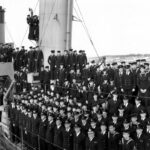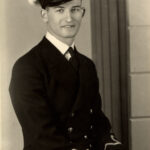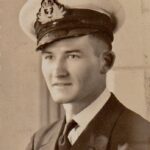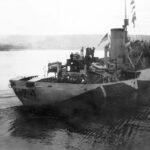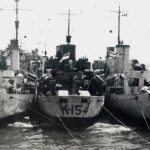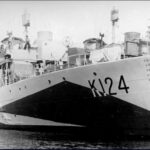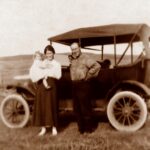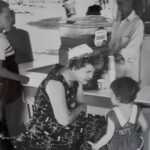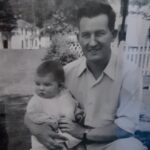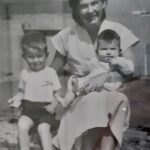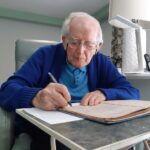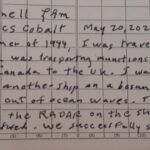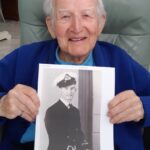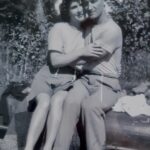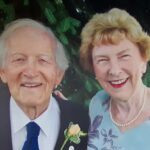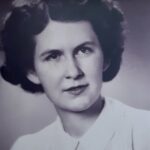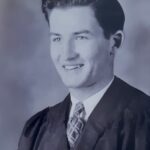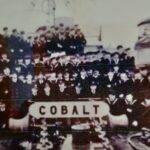Lorne McConnell was born February 9, 1924 in Central Butte, Saskatchewan. He grew up in that small community, helping his father to run the town’s water and telephone systems. He also did very well in school, which Lorne credits to early lessons from his sister, and he developed as an athlete too, even being offered a spot by the New York Rangers! He grew up against the backdrop of the Great Depression and the Dust Bowl, still managing to finish school early and to head off to the University of Saskatchewan in the big city of Saskatoon. Lorne studied the sciences, becoming interested in physics and the new discipline of radar; he also was enrolled in the COTC and chose to join the RCNVR. He attended university and did naval training at the same time, and was sent to Ste-Hyacinthe, Quebec to do specialized radar training. In 1944 Lorne was assigned to the HMCS Cobalt, and he did convoy duty in the summer of 1944. On one memorable occasion he was transferred between two corvettes in a bosun’s chair in order to make a repair on radar equipment; more often though he dealt with the day-to-day conditions on the ship – watching the radar, trying to sleep in the hammock, and doing all he could to avoid seasickness. At the close of the war Lorne was back in Saskatoon, and with a background in physics and radar he received a call from McgIll University physicist David Keys, asking him to become involved in atomic research. Lorne accepted the invitation and became heavily involved in research at Chalk River, and he was among the luminaries in the early history of atomic energy in Ontario. He helped to pioneer the use of atomic energy in the province, and was heavily involved in the establishment and running of the first nuclear power plants in the mid-1950s. As such he had a firsthand view of the interplay between politicians and bureaucrats and industry professionals. Lorne McConnell is a Canadian who lived through and helped to transform the country going from the 20th into the 21st century; he participated in a war, travelled across Canada and the globe, and was at the forefront of technological change: he changed the rhythms of Canadian life that we have all experienced. Lorne was interviewed for this project by Scott Masters at his home in Toronto in May 2022.
Videos
Click next video below to keep watching
